No products in the cart.
PCOS And Hijama Cupping Therapy
Polycystic ovary syndrome (PCOS) is considered one of the very common health conditions nowadays. One out of ten women is experiencing PCOS of their childbearing age.
What is PCOS
Women with PCOS have multiple cysts in their ovaries, caused by an overproduction of hormones called androgen. The ovaries are a pair of glands on each side of the uterus. The shape of the ovaries is like the shape of a large marble. The ovaries not only make eggs, but they also produce hormones.
Hormones react as a chemical messenger, pass into the bloodstream and perform different functions on various parts of the body. Ovulation occurs once a month when eggs are released into a fallopian tube as a regular and healthy menstrual cycle. With PCOS, eggs do not develop properly as they are supposed to. The ovaries also develop small follicles which fail to release eggs regularly.
Symptoms of PCOS
PCOS creates a hormonal imbalance in the ovaries. PCOS also causes irregular menstruation which leads to infertility (inability to get pregnant).
Symptoms of PCOS vary from one woman to another. Some of the common signs are:
1- Hormonal imbalance
2- Irregular menstruation
3- Infertility
4- Acne, oily skin, skin tags, darkening of the skin
5- Excessive hair growth
6- Weight gain
7- Type-2 Diabetes, excessive production or resistance of insulin level
8- Heart disease
9- Endometriosis cancer, Pelvic pain
PCOS and Diet
Proven research has shown that a well-balanced diet plays a vital role in reducing the effects of PCOS. Women with PCOS have higher than normal insulin levels. Too high a level of insulin makes it harder to lose weight. That is why a well-balanced diet is important for such health issues.
A diet high in refined carbohydrates such as starchy food, sugary beverages, or fried food, makes it difficult to control weight.

High-Fibre Diet
The high-fibre diet helps to slow down the digestive process which means that they do not cause insulin levels to rise as quickly as carbohydrates do. A high-fibre diet includes:
Whole grains, legumes, beans, lentils, nuts, seeds, Fruits, Berries, Vegetables, and a low-carbohydrate diet.
Anti-inflammatory Diet
Anti-inflammatory foods such as berries, fish, omega-3 fatty acids, leafy green vegetables, spinach, kale, tomatoes, almonds, walnuts, and extra-virgin olive oil help reduce inflammation and help with PCOS as well.
Protein Diet
Lean protein food such as chicken, eggs, fish, and tofu is a healthy dietary option for women with PCOS.
Vitamins and Minerals
Choosing nutrients rich in vitamins and minerals may also help to reduce the symptoms of PCOS.
Vitamin D as in salmon, eggs, mushrooms….
Vitamin B8 as in tuna, almonds, strawberries, corn, oranges, eggs….
Iodine as in Himalayan salt, eggs, yogurt, salmon….
Selenium as in eggs, cottage cheese, tuna, salmon, spinach….
Magnesium as in avocado, nuts, seeds, whole grain, bananas….
Healthy Fats
Consuming healthy fats is very necessary for a properly balanced diet. Healthy fats not only increase hormone production but also help with the absorption of vitamins in our bodies. PCOS patients are always at risk of heart disease, fats improve heart health.
Water-intake
Women with PCOS need to increase their water- intake. Hydrating yourself is essential to have a healthy body. Water is the best detoxifying natural agent. Water helps with weight loss, refreshes the skin, boosts physical performance, aids in digesting food regulates body temperature, maintains blood pressure and the list goes on.

PCOS and Lifestyle change
Lifestyle change is very important for women with PCOS. Lifestyle change not only helps to manage the condition but also makes the life of the patient a little bit easier. Modern science has not yet been able to find the cure for this disease so, lifestyle change helps a lot to reduce the symptoms.
This includes exercise and physical movement. Exercise makes you fit and active, also helps you with weight loss, blood circulates around your body and it can also help to reduce insulin resistance in the body, especially with the limitation of unhealthy carbohydrates. At least 30 minutes of exercise per day is very beneficial for PCOS patients.
Yoga, meditation, and deep breathing exercises are also a part of lifestyle change.
Stress-management techniques:

Studies have shown that one of the common symptoms of PCOS is stress, depression, and anxiety. Several stress management techniques can be effective for PCOS patients. Relaxation and de-escalating techniques work very well. Deep breathing exercises, mindfulness meditation, yoga, getting enough sleep.
Don’t over-burdened yourself, laughter techniques, personal self-care, a positive mindset and most importantly helping others can help you to reduce your stress. Drinking a glass of water can also help to reduce stress. It is also very important to have a social support system around you like close friends who are always there when you need them.
Physical Therapies and PCOS
When we talk about lifestyle change, physical therapies are also included. Several other therapies work well with PCOS but Acupuncture and Hijama Cupping Therapy are the most effective ones.
Hijama and PCOS
Hijama cupping therapy has been found very effective for the treatment of polycystic ovarian syndrome (PCOS)- A hormonal disorder in which tiny cysts (follicles) develop in the ovaries. The success rate of the treatment of PCOS through Hijama cupping therapy is very high, Shukar Alhumduallah.
In PCOS ovaries do not develop, so ovulation does not occur properly. Ovulation is directly linked to the menstrual cycle of women. Hijama cupping therapy induces ovulation and has an anovulatory cycle. It also helps to remove blockages and inflammation of the fallopian tubes. Hijama cupping helps to regulate the menstrual cycle. PCOS is the main cause of infertility in women. Applying Hijama cups on the front side of the belly and at the lower back helps to target the problem area in the reproductive system that causes infertility.
The treatment plan of Hijama for PCOS
The treatment of PCOS through Hijama cupping therapy includes fixed cupping, moving cupping, and wet cupping with a well-balanced diet and lifestyle change as mentioned above. To get the full benefits of Hijama it is very important to divide the Hijama sessions into different portions.
First session In the first session, fixed cupping and wet cupping are applied. It is a good idea to target the 7 organ points on the back of the client. It helps to circulate the blood around the body and detoxify the body as well.
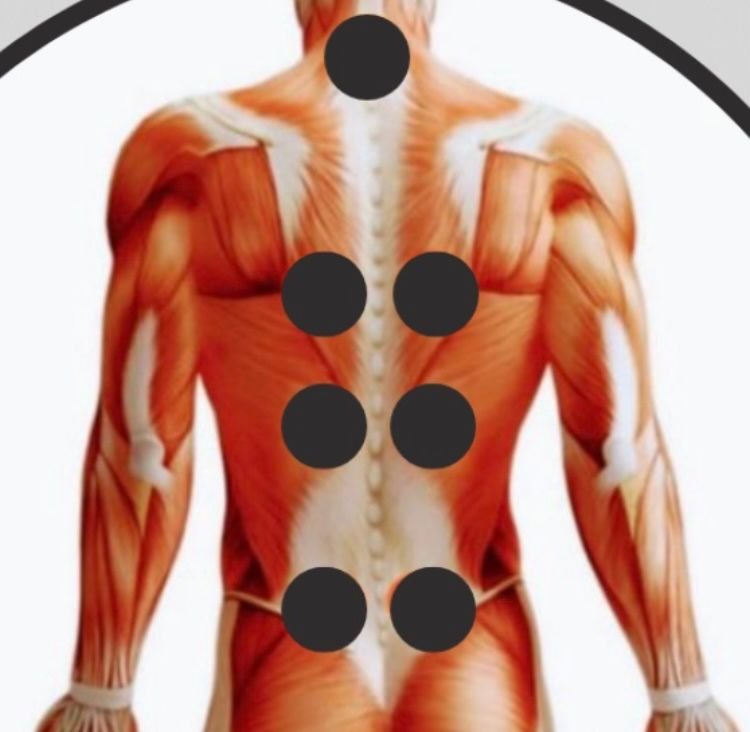
Second session In the second session, the upper portion of the back should be targeted. It is very important to hydrate yourself and start a well-balanced diet.
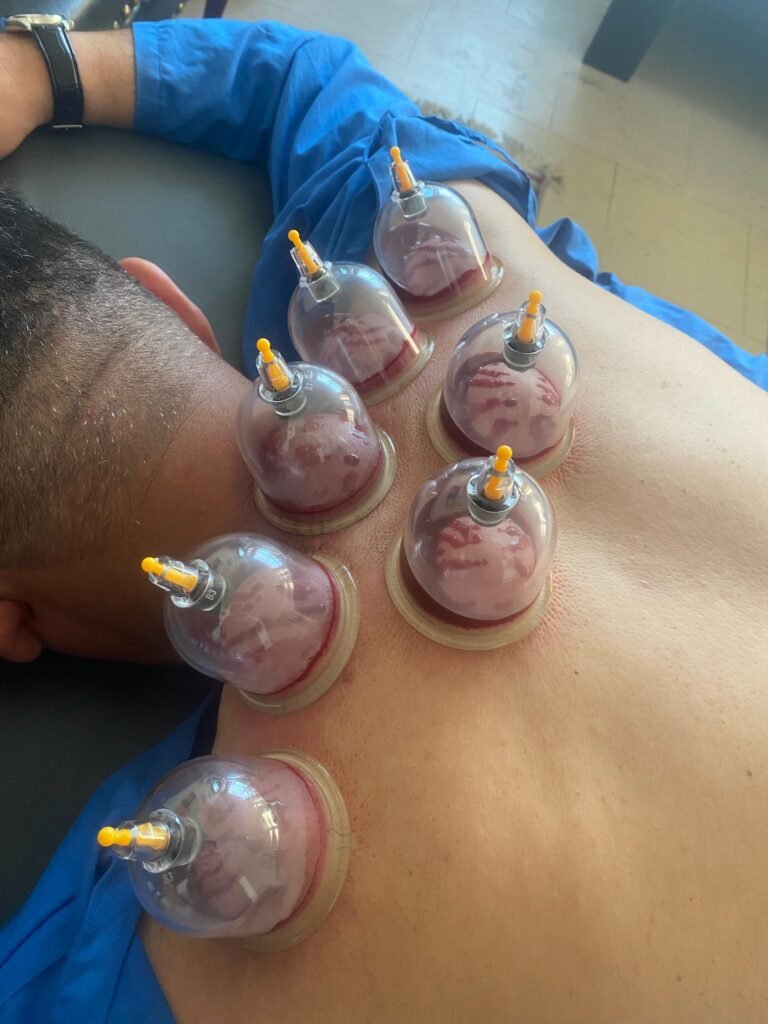
Third session In the third session, moving cupping and wet cupping should be applied. Moving cupping helps to circulate the blood. The upper back along with the lower back should be targeted for this session.
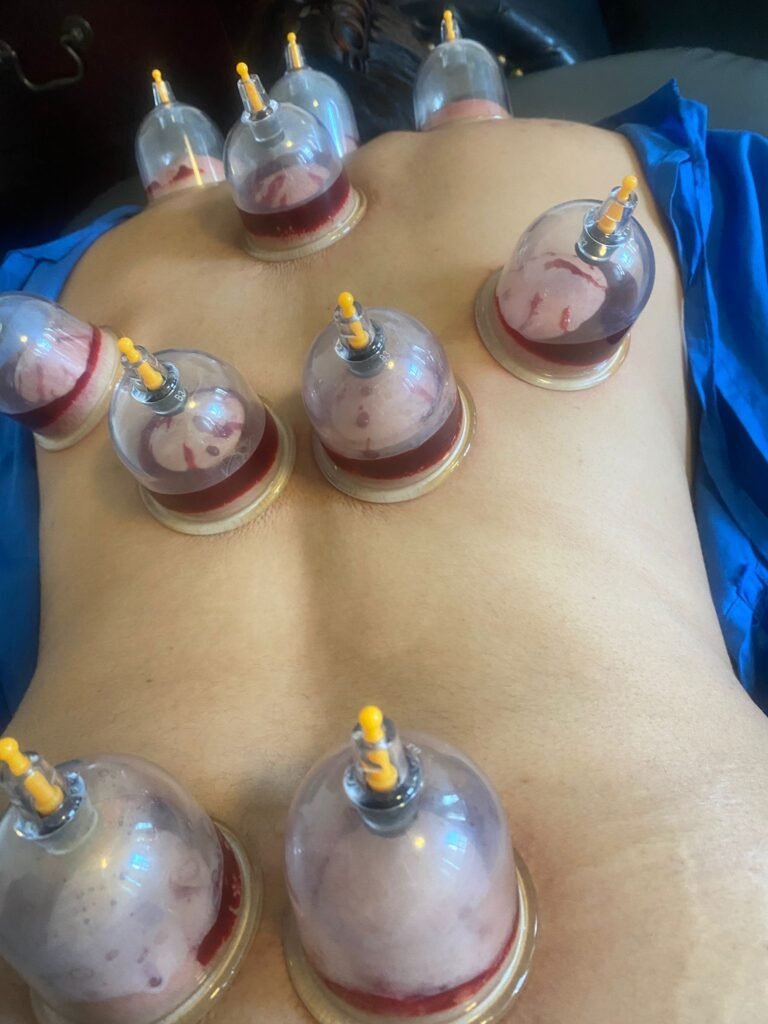
Fourth session Endometriosis cancer is one of the leading causes of PCOS, and infertility, some women experience severe pain in the pelvic area. Pain varies during the menstrual cycle as hormone levels fluctuate. So, in this session, it is important to target the pelvic area, abdomen, and lower back. Moving cupping should be applied as well before wet cupping.

Fifth session In this session, we apply hijama cups on the thighs and top of both feet. The top of the foot is a sunnah point. Hijama on foot is very beneficial for a lot of health issues.
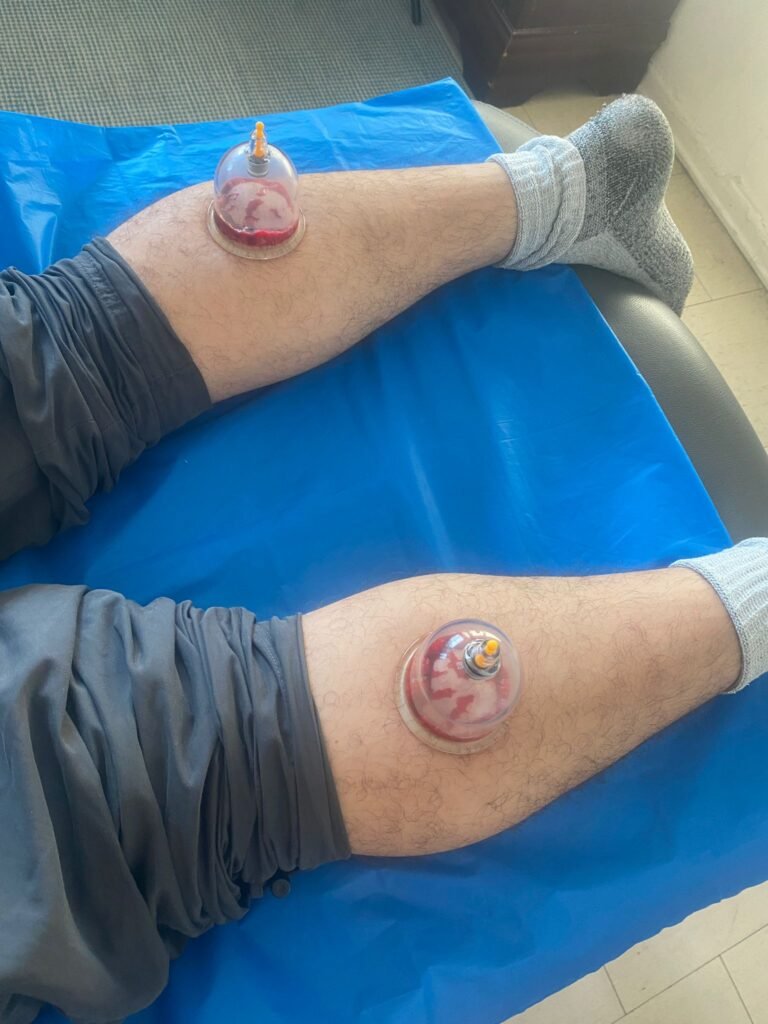
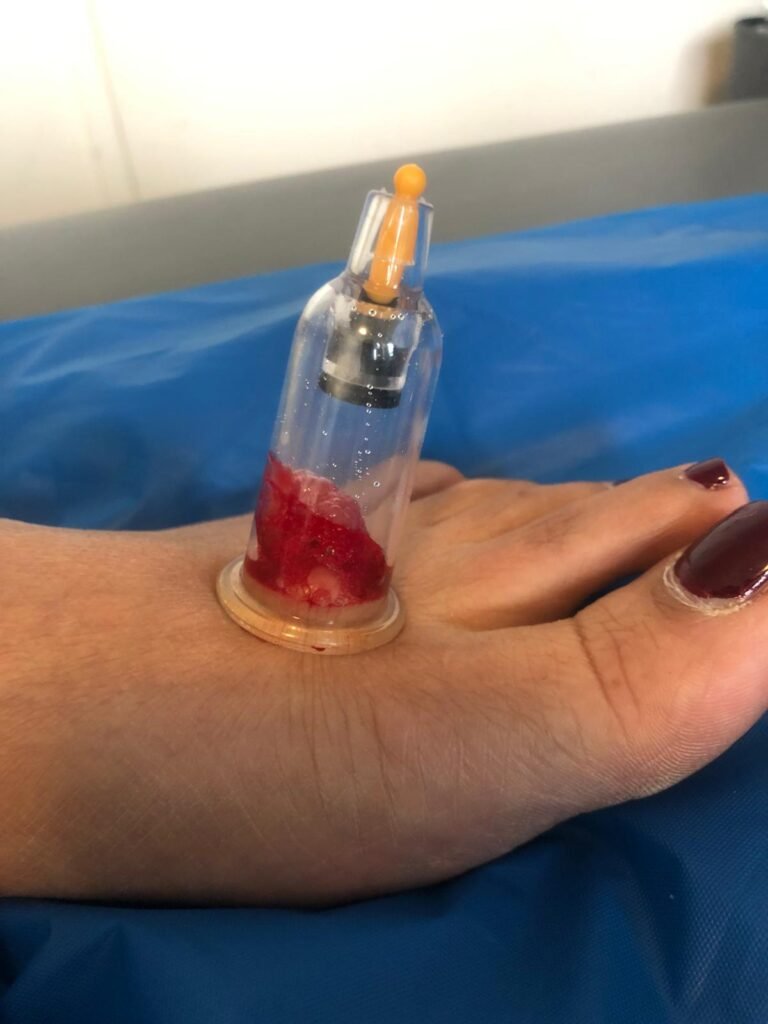
Anas Ibn Maalik said, “ Our Dear Prophet (P.B.U.H) was cupped on the top of his foot”. [Saheeh Sunan Abi Dawud (1836)].
Sixth session Most of the clients feel very fresh and relaxed as we approach the sixth session of Hijama cupping therapy. It could be the last session of the PCOS series, depending upon the client how their body reacts after all the sessions. The upper back, lower back and a few points of the neck area are being targeted in this session along with diet and lifestyle changes.
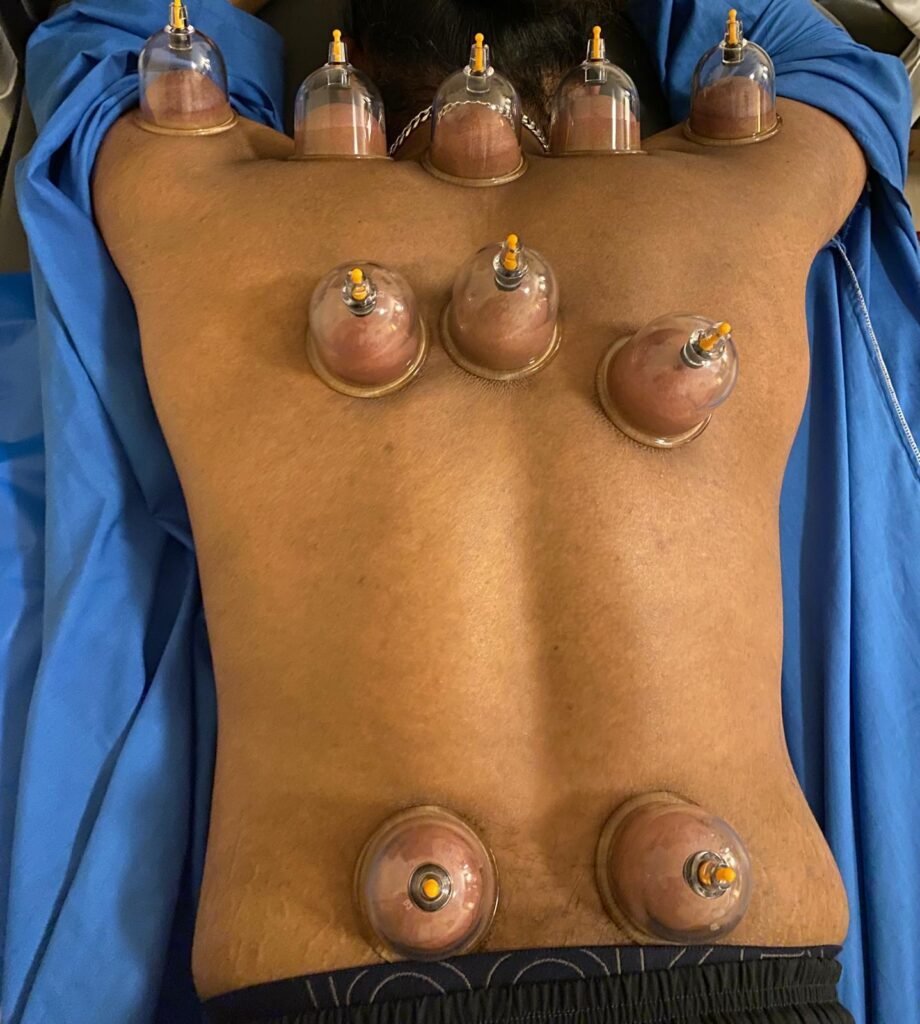
Conclusion
Generally, clients feel very positive about the increase in their well-being. Hijama cupping therapy helps to maintain the hormonal imbalance in the body. It helps to regulate the menstrual periods and also eases menstruation and cramps. Hijama also helps with hirsutism ( a condition of unwanted male-pattern hair in women). Overall muscular pains also reduce with Hijama. It also helps to target the problem area in the reproductive system that causes infertility in women. Hijama is a natural, holistic, healing therapy that connects body, mind and soul. Hijama cupping therapy along with a well-balanced diet and lifestyle change is one of the best treatments for PCOS. Allah (SWT) has provided us tools like Hijama for shifa but of course, the ultimate shifa comes from Allah (SWT).

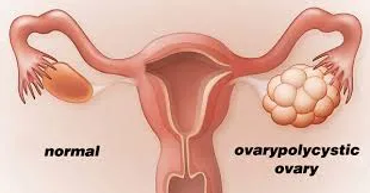



Leave a Reply